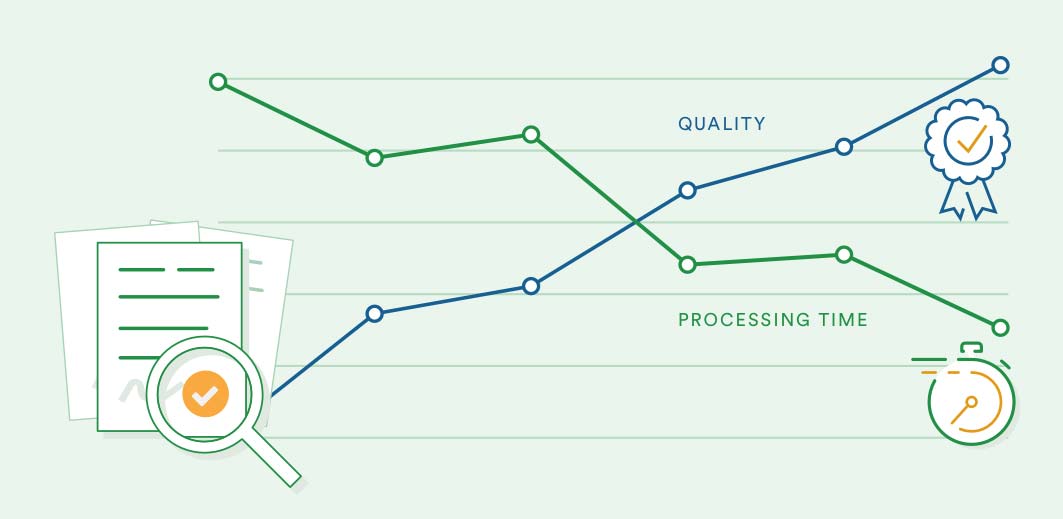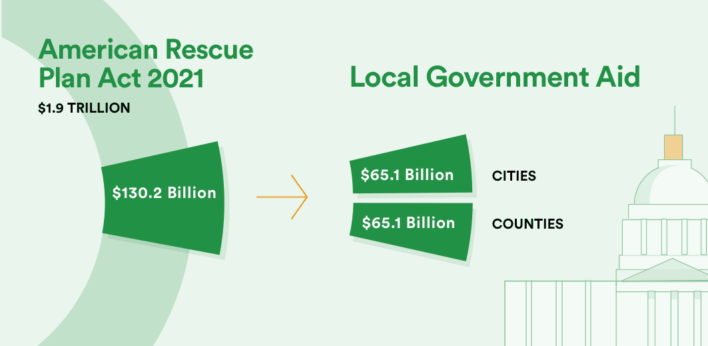The more efficiently City Hall runs, the more effectively it can serve its community. That may sound simple enough, but efficiency relies on many factors —knowledgeable staff, thoughtful policies and processes, and effective collaboration.
Inescapably, money and time play integral roles in this equation, too, which begs the question: How can a city improve its bottom line when it comes to permitting? If this thought is on your mind, we have some insights you may find useful.
But let’s back up for a moment: Do you know the cost of your permitting process?
There’s the monetary cost of software systems, physical supplies, inspection expenses, internal IT maintenance, not to mention the work of dedicated employees across multiple departments who spend hours fielding questions and managing paperwork to keep the process moving.
As we can see, the cost of permitting operations — in both dollars and hours — can be hard to quantify. It’s a safe bet, though, that the overall cost is higher than expected — and more than it needs to be.
The good news is there are ways to lower your city’s permitting costs while maintaining or increasing services, improving the constituent’s experience, and relieving employees of time-consuming rote work.
Here’s how to do just that by optimizing four areas of your permitting operations.
1. Move permitting to the cloud.
Local governments are often late adopters of new technology. We get it — change is cumbersome and expensive. It’s unfortunate, though, because, in the long term, new technology can make operations more cost- and time-effective. This is certainly the case when it comes to permitting.
On-premise used to be the only way to manage municipal data. But the burdens of relying on that siloed, physical approach compound quickly — considerable time, space, security risk, and money are all shouldered by the city in the name of data maintenance.
Now we have the cloud.
Moving to the cloud can help you capture considerable cost savings. No more investing in hardware and infrastructure. No more paying for extra servers you may not need. You’ll even decrease your electric bill! And shifting data maintenance not only frees up capital, but also space — no more closets filled with blinking and humming hardware.
2. Digitize some (or all) of your process and keep your permit counter open 24/7.
Many cities still rely on paper for a large part of their permitting process — carbon copies, even! And while the cost of a single paper form may seem negligible in the face of your city’s budget, consider this: You pay for the paper forms to be produced, printed, delivered, processed, shuffled back and forth among several departments, and, ultimately, stored somewhere on site. The wake of this paper trail is littered with time, space, and money — not to mention inevitable human error and lost forms.
Plus, good ideas sometimes happen outside of regular business hours. If physical forms need to be picked up from City Hall during weekday hours, the city risks missing out on that additional revenue-generating activity. That’s because the applicant could decide their idea isn’t worth the herculean effort, or an applicant could begin exploring neighboring municipalities that provide online access to forms and information, and the city loses out on the revenue.
Digitizing even part of your permitting operations — say, just the permit discovery phase — can streamline the process for applicants and municipalities alike, providing a more business-friendly operation for constituents, and freeing up city resources for other important tasks.
3. Provide answers to common permit discovery questions online.
Permit discovery is not for the easily deterred. Whether one is adding on to their home, planning a folk concert in the park, or opening a sandwich shop, the questions immediately begin to pile up:
What’s the NAICS code for a yoga studio in my city? And the land use code? Are there height restrictions in my neighborhood? Do I have to hire a contractor or can I do it myself? Do I even need a permit if I’m just building a shed in my backyard?
Faced with the dense bureaucratic language and thousands of pages of information to sort through, people can either:
- try to sort it out on their own, but risk making costly mistakes
- hire a third party to navigate the process — an expensive option that only some players can afford
- move forward without a permit, which violates safety regulations and shorts the city on revenue
- contact City Hall for assistance
The last option is quite popular, which is why City Hall staff spends an inordinate amount of time — we’re talking thousands or even tens of thousands of hours every year — answering the same questions over and over. We know these city agencies love their communities and are eager to assist their fellow citizens, but fielding repetitive and redundant pre-application queries both wears on employees and keeps them from other revenue-generating tasks, like actually issuing permits.
Providing a list of answers to common pre-application questions online is a simple, cost-effective way to avoid permit discovery fatigue for constituents and staff. (It’ll also help constituents mitigate preventable mistakes and minimize permit violations!)
4. Switch to a comprehensive, cost-effective virtual permitting counter.
The recommendations we’ve discussed so far can be enacted in piecemeal fashion and have a positive impact on a city’s budget. But if you’re truly motivated to provide a streamlined experience for both staff and constituents, know that you can bring all of these cost-effective suggestions to life by switching to a virtual permitting counter.
Think of it as a shift from permitting as civic service to permitting as civic investment.
Adopting a virtual permit counter provides constituents with an online one-stop-shop for permit discovery. This means citizens can easily navigate the pre-application process, find answers to common questions, explore zoning and licensing information, access forms, schedule inspections, and more — at any time, from any place, without taking up staff’s valuable time and resources.
OpenCounter: Your Permit Discovery Partner
If you’re looking to lower the cost of your city’s permitting operations, it’s time you got to know OpenCounter.
We’ve become the virtual permitting counter for municipalities across the country — from Cincinnati to Miami and from Detroit to Fort Worth. That’s because our suite of portals makes it simple for cities to lower the cost of permitting and raise the quality of the customer experience.
And constituents love OpenCounter too! That’s because we make it easy to understand zoning requirements, which permits they need, how much each of them costs, and how to apply. Cities like OpenCounter because it not only saves time, space, and money, but it also unlocks the potential for additional development, leading to increased revenue.
Plus, OpenCounter’s products are backed by legendary service — a team of public sector experts — people with deep knowledge of all things zoning, permitting, and licensing, who partner with our clients to achieve the best outcomes for each engagement. We know how complex every single one of these processes is, the headaches and inefficiencies they’re causing your team, and how exactly to ease those burdens without busting the budget.
We don’t just offer a great product — we deliver great service, too.
See for yourself how OpenCounter can modernize your zoning, permitting, and licensing systems, leading to greater efficiency and happier citizens. Get in touch and schedule a discovery session with us today.



